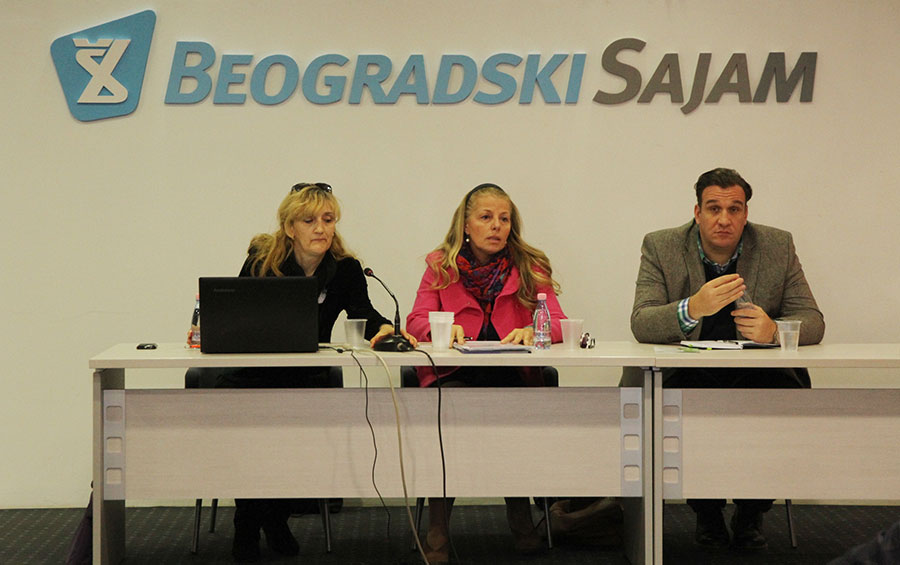Within Belgrade Book Fair, a seminar was held, titled “Libraries as Source of Quality Information on the European Union.” More than 20 librarians from across Serbia enjoyed the opportunity to find out more about how their institutions could apply for EU funds, use Europeana and EU Book shop portals and learn more about future possibilities of EU Delegation supporting libraries in Serbia.
Dubravka Savic, Project Manager at the EU Delegation to Serbia, called librarians to join efforts with the Delegation and improve library network that would support them and their members to better familiarise themselves on the process of integration and how the EU worked.
“As of July 2014, through the signature of Memorandum of Understanding among National Library of Serbia, Ministry of Culture and Information, Serbian European Integration Office and EU Delegation to Serbia, we have been working together to provide information, brochures and publications on the EU,“ Savic said.
She said that, for the past 15 years, the EU Delegation has distributed 16 publications about the EU in Serbian language to librarians. “25 libraries across Serbia have made specific bookshelves labelled Serbia in the EU, to display these and other publications associated with the EU. In 2015, we held seminars with librarians from Vojvodina and South Serbia, organised by the EU Info Centre from Belgrade and EU Info Points from Nis and Novi Sad in close cooperation with the National Library of Serbia.“

Photo: EU info centar
Vesna Jovanovic of the National Library of Serbia detailed the project implemented with Serbia-level network and the support from EU Delegation. The main idea behind the “EU Info Points in Serbian Libraries” Project is to bring citizens closer to information on the EU in various areas. The Project will be implemented through workshops and seminars, first of which starts 18 November. One of the aspects will be engaging libraries in Europeana programme.
Project’s goal, as Vesna Jovanovic put it, “is to strengthen information and media literacy of librarians and citizens, to inform them on the EU, but also on its regulations in the area of justice, health, studying.”
EU Book Shop also provides useful information on the EU, said Information Officer of the EU Info Centre Marina Rakic, pointing out that the portal was an actual bookshop, library and archive with publications published as of 1952. “There are more than 100,000 publications, CDs, posters and other features, mostly free of charge and, apart from PDF versions, might also be ordered in hard-copy format,” she said.
Libraries can improve their services within EU cross-border programmes, presented by Relja Burzan, Head of Information Sector of Hungary-Serbia Cross-border Programme in Subotica.
As of 2004, through CARDS and IPA programmes, over 800 projects have received funding, including at least one partner from the countries included in cross-border cooperation.
So far, some 3,600 projects have been submitted within 35 cross-border programmes worth 91 million euros, Burzan said, adding that application forms and rules of implementations are indeed complex, but that it should not drive libraries away from seizing the opportunity of receiving grants (85 per cent of project’s total value) and developing cooperation with their counterparts in the country and region.
In this regard, libraries from Subotica and Becej presented examples of good practice.




